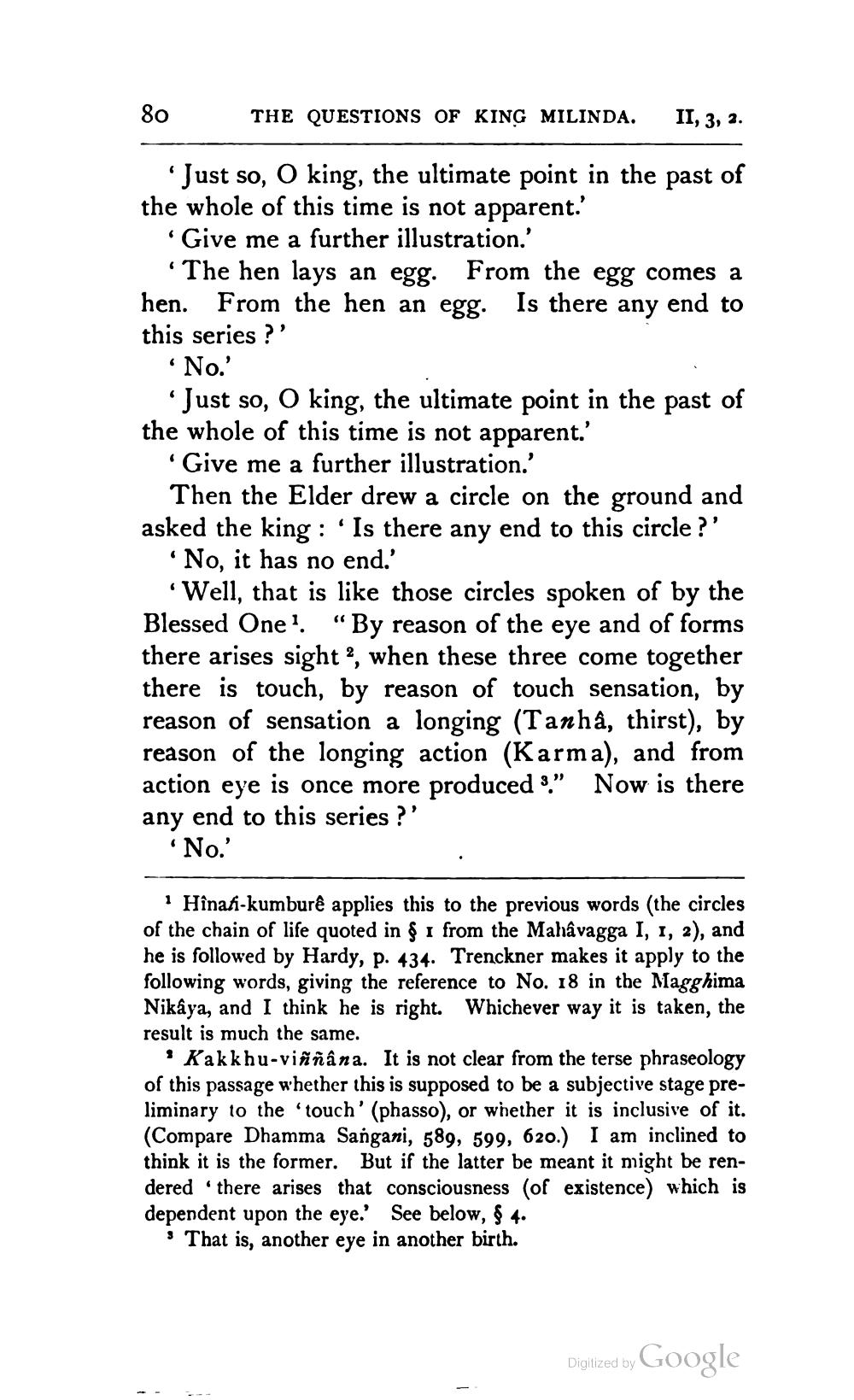________________
II, 3, 2.
'Just so, O king, the ultimate point in the past of the whole of this time is not apparent.'
Give me a further illustration.'
'The hen lays an egg. From the egg comes a hen. From the hen an egg. Is there any end to this series?'
80
"
THE QUESTIONS OF KING MILINDA.
'No.'
'Just so, O king, the ultimate point in the past of the whole of this time is not apparent.'
'Give me a further illustration.'
Then the Elder drew a circle on the ground and asked the king: 'Is there any end to this circle?'
'No, it has no end.'
'Well, that is like those circles spoken of by the Blessed One1. "By reason of the eye and of forms there arises sight 2, when these three come together there is touch, by reason of touch sensation, by reason of sensation a longing (Tanhâ, thirst), by reason of the longing action (Karma), and from action eye is once more produced "." Now is there any end to this series?'
'No.'
1 Hînafi-kumburê applies this to the previous words (the circles of the chain of life quoted in § 1 from the Mahâvagga I, 1, 2), and he is followed by Hardy, p. 434. Trenckner makes it apply to the following words, giving the reference to No. 18 in the Magghima Nikâya, and I think he is right. Whichever way it is taken, the result is much the same.
Kakkhu-viññâna. It is not clear from the terse phraseology of this passage whether this is supposed to be a subjective stage preliminary to the 'touch' (phasso), or whether it is inclusive of it. (Compare Dhamma Sangani, 589, 599, 620.) I am inclined to think it is the former. But if the latter be meant it might be rendered there arises that consciousness (of existence) which is dependent upon the eye.' See below, § 4.
"That is, another eye in another birth.
Digitized by Google




